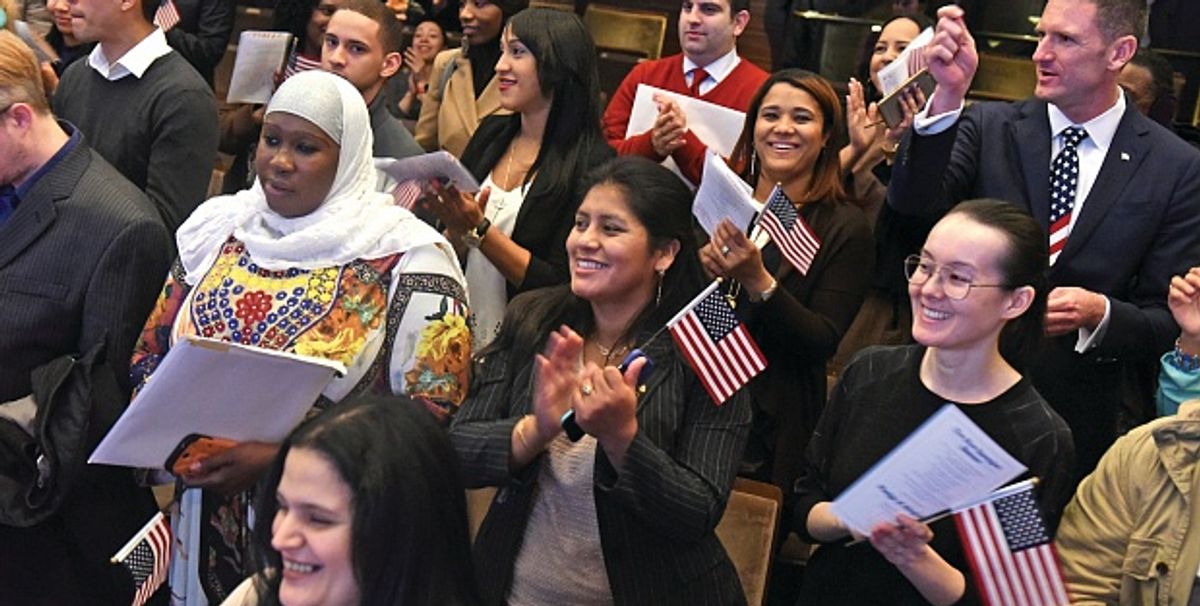The New-York Historical Society is putting its collection and resources to work in response to the Trump administration’s proposed travel ban on people from six countries. It has joined forces with CUNY Citizenship Now!, a programme run by the City University of New York that provides free legal services to immigrants seeking US citizenship, to organise workshops that will prepare Green Card holders for the naturalisation test.
The museum, which has hosted naturalisation ceremonies for more than a decade, had been considering such a project for several years. But after the travel ban was announced in January, “it became more evident that the [US] Constitution offers many protections [that you are not offered] if you’re not a citizen”, says Jennifer Schantz, the museum’s executive vice-president.
“We felt that it was important to do what we do best—which is teach American history,” Schantz says. The course is due to launch on 15 July, and includes history lessons, simulated interviews and tours in the permanent galleries and temporary exhibitions. “It’s a way to make everything come alive,” she says.
The museum expects 1,000 participants in the first year of the quarterly classes, which will be free thanks to grants from the Ford Foundation and Andrew W Mellon Foundation. Funding permitting, the ultimate aim is “to design a really robust online class that we could offer for free”, Schantz says.
Other museums have been running educational programmes for immigrant communities for years. By the end of 2017, the Minneapolis Institute of Art (Mia) will have supported 75 legal immigrants through its six-week US history programme, the Art of Naturalization, now in its third year.
The Queens Museum, with the Queens Library, has run the New New Yorkers programme for immigrants of any status for 11 years. Around 500 participants a year take free, multilingual classes ranging from practical skills such as computer literacy to art workshops, including visits to the museum and other New York institutions.
Although it would be a bonus if participants became active museum-goers, the chief aim of such initiatives is to serve the local community. The Queens Museum has an “obligation [...] to enrich the lives of the public” in a highly diverse borough, says its deputy director, David Strauss. Mia’s head of multi-generational learning, Elisabeth Callihan, spends much of her time simply meeting local residents and building trust with them. “We make friends,” she says. “We drink a lot of coffee.”


